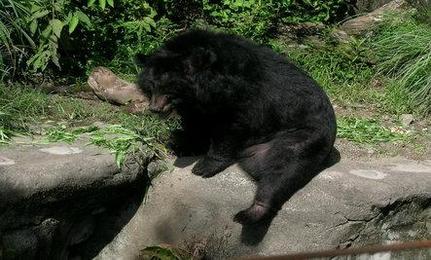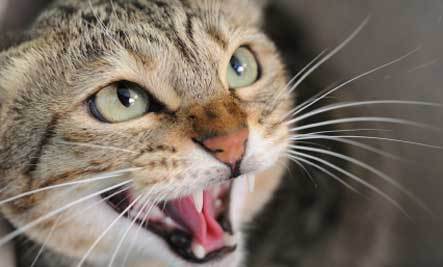A survey of 152 traditional medicine practitioners in Vietnam resulted in their acknowledgment of the dangers of using bear bile. Practitioners who took the survey admitted they knew of four cases of bear bile poisoning which resulted in death, and three others who were also injured by bear bile, but did not die.
Doctor Nguyen Xuan Huong, who is chairman of the Traditional Medicine Association of Vietnam has worked with 10 patients suffering from bear bile poisoning, “In each of these 10 cases, all had damage to the liver and in most cases, the liver was almost gone – the part that was left was swollen, necrotic and hard.” (Source: Animals Asia) He also said bear bile causes kidney damage, and blood in the urine.
Bear bile is extracted in a manner which requires bears to be kept in small cages year round, and drained of their bile in a very painful manner, much like torturing them. There are about 4,000 bears in Vietnam used for bile collection, according to Animals Asia. In China there may be 9,000 according to the World League for the Protection of Animals.
Also, some bears are hunted and killed for only the gall bladder. The irrational beliefs surrounding bear bile have raised prices to absurd levels, “In 1970 one kilo of bear gall bladder cost around S$240, but by 1990 the price had risen to between S$3,610 and S$6,018 per kilo. Recent market price with legal certification has risen to between S$36,100 and S$60,180 per kilogramme (our experience in legal market of Hong Kong) (15).” (Source: sciencebasedmedicine.org)
So bears are dying and undergoing great suffering for a substance which actually can harm people, and even cause death. The founder of Animals Asia, Jill Robinson said, “Korean tourists are lining up to visit bear farms in Vietnam on organised bus tours, many leaving with vials of fresh bear bile as a hangover cure – and bear bile is sold on the black market in Chinatowns around the world. The longer it takes the authorities to act, the more people will fall ill and possibly die.” (Source: Animals Asia)
To people outside of Asia, this news may seem a little disconnected from their everyday reality, but the demand for bear bile is strong enough to have caused poaching of bears in Oregon. “We estimate that if just 1 percent of China’s population could afford to buy a bear gallbladder, it would wipe out the entire U.S. (bear) population,” said Ed Espinoza, who works in a wildlife crime lab fighting illegal animal trafficking. (Source: High Country News)
So what can you do? Do not ever purchase any products containing bear bile. Share this information with your family, relatives and friends. You can also donate to Animals Asia, or start your own blog or charity. Inform yourself about the dangers of using products from traditional medicine, especially those products containing animal parts.
Adapted from an article by Jake R.





